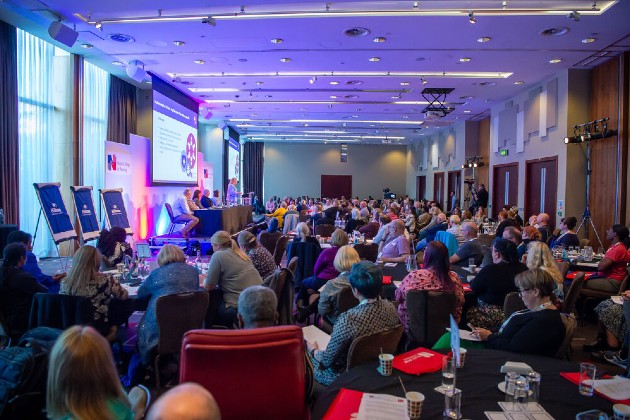‘I’ve lost my baby’. Just 4 words, so quick to say, yet the hardest I have ever said publicly. The range of what those words mean and how that loss happens for people is vast. Early or late miscarriage, still birth, neonatal death – those 4 simple words don’t even scratch the surface in describing the level of pain and suffering experienced.
Through the incredible work of charities and the bravery of families who’ve experienced loss speaking out, there have been improvements in awareness and support. However, despite this, issues around fertility treatments and baby loss are still largely unspoken and hidden within society.
I would like to highlight the complexities of these experiences when you work in health care. Of course, going through fertility treatment and experiencing pregnancy or baby loss are challenging for everyone. This article is not meant to diminish the experiences of anyone else, nor discount that there will be many other workplaces that’ll also be equally as triggering.
IтАЩve lost my baby. 4 words, so quick to say, yet the hardest I have ever said
Nurses and midwives account for the largest proportion of the NHS workforce, and 88.9% of those are female. 1 in 6 women will experience at least 1 miscarriage. There is little national data on repeated miscarriage. Around 13 babies are stillborn or die every day in the UK. There were 4,870 baby deaths in the UK in 2021, of which 2,866 were stillbirths and 2,004 were neonatal deaths (source: ).
Scaling the above just across the ╠└═╖╠є╬█┴╧ and midwifery workforce demonstrates the number of our colleagues who've been impacted by baby loss at some point during their career. We also need to be mindful of partners, further increasing the number of colleagues impacted by baby loss within our organisations.
As health care professionals there will be days when we encounter situations at work that have personal impact: a patient that reminds us of someone close to us or a situation that happened in our own lives. When you work in health care тАУ across ╠└═╖╠є╬█┴╧, midwifery, medicine and all allied professionals and support staff тАУ in roles that involve working around babies, children and pregnant women, there is a constant reminder of your own personal experience and loss. The loss of a pregnancy at any stage is an emotional and stressful time and research shows that the impact of loss is the same regardless of gestation.
There have been huge improvements around the offer of paid leave for baby loss in some NHS trusts and recognising the need for time off work. However, when our colleagues return to work, they are not suddenly тАШOKтАЩ. Losing your baby is a bereavement and that is a process both physical and emotional that is unique to everyone.
1 in 6 women will experience at least 1 miscarriage
Our colleagues are dealing with their own loss, often in silence, while encountering daily triggers and reminders of their own experience. They may even be working in the same services or locations where they had their own loss experience. We need to recognise the impact of baby loss on our colleagues and respond with kindness, compassion, and flexibility in how conversations and returning to the workplace are managed.
- Read next: How to support ╠└═╖╠є╬█┴╧ staff under stress
We need to acknowledge that there can be complexities in accessing support, especially in public forums or local support groups where there may be challenges to speak about the impact of workplace situations on their own bereavement journey.
This can be complicated by cultural or religious norms, or by language barriers. Identifying as a health care professional can also change group dynamics, with people wanting help and advice, or others within the group having had their own challenging experiences of health care during loss.
We need safe spaces where our colleagues can access support around their own personal loss and feel able to discuss the ongoing impact of working within their professional roles while they come to terms with and start to heal from the traumatic experience.
Our colleagues are dealing with loss while encountering daily triggers and reminders
Navigating loss is a journey, where individual support needs will change throughout that process. Personal disclosure of any kind is challenging. For those who feel talking to someone in the workplace about their own loss is the right thing for them, this needs to be met with compassion and understanding and supported in a way that meets their own needs.
Colleagues often need coaching and support on ‘what to say’ rather than saying nothing at all and having silence around the issue. There will be many of our colleagues who’ve received incredible support from their employer following personal loss; however, staff experiences of support can vary even within an organisation.
Our workplaces need an open, consistent culture around baby loss, collective understanding of what that means and the potential impact on staff. There needs to be knowledge around how to respond and support our colleagues appropriately and to signpost.
I hope that by using my voice I can help improve the experience of returning to work for other people and amplify the conversation about baby loss and the support needed for health care workers.








